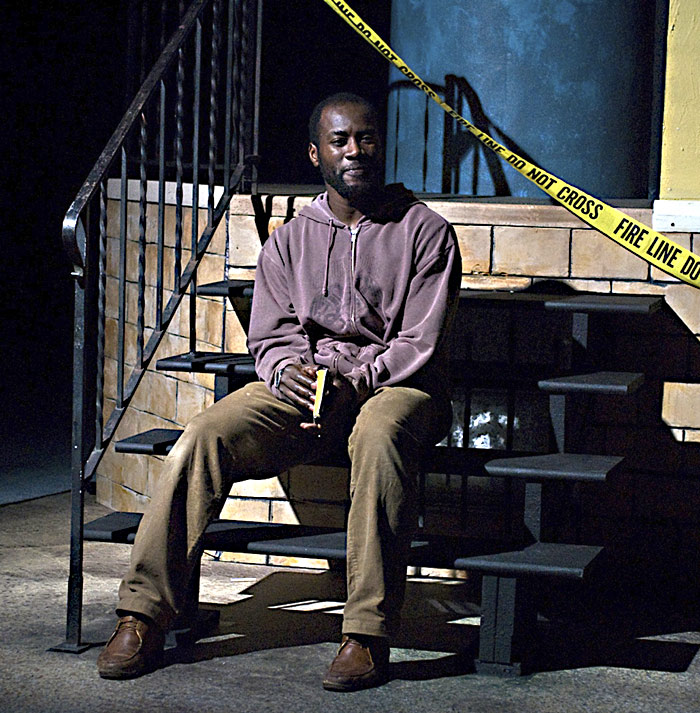A blown fuse is the apt introduction to this adaptation of Dinaw Mengestu’s novel, in which Sepha, an unmarried Ethiopian store owner, navigates the nexus of three cultures in Washington, D.C. His African friends Ken and Joseph, an engineer and an upscale waiter, encourage him to embrace the American dream, while his African-American customers are far less taken with it (though they do appreciate having a place to buy milk). When white, Nordstrom-clad ex-professor Judith plants her flag of gentrification on the building next door, Logan Circle heats up. Judith’s biracial 11-year-old daughter Naomi strikes up a friendship with Sepha, and Judith joins in, giving Sepha an illusion of the family he craves.
Book-It’s production thankfully avoids the bog of sentimentality into which so much immigrant-themed material falls. Adapter Kevin McKeon takes from the book’s clear-eyed text a representative sampling of scenes that director Jane Jones infuses with nuance and energy. When Sepha walks past the restaurant where Joe works and their eyes meet like strangers, or when a lonely, tipsy Judith gives cruelly mixed signals to Sepha about her availability, we wish we could hit “pause.”
The accents sound spot-on, and the three main men soon draw us into both their wit-laced bonhomie and the nightmares that haunt them. As Sepha, Sylvester Foday Kamara yearns, burns, and churns naturally, without a hint of mawkishness or melodrama, trusting the power of the story to touch us. Myra Platt’s Judith embodies Brahmin entitlement in flesh-crawling ways, including what might be the most obnoxious “ciao-ciao” hand wave ever executed on a stage. Such privilege looks better on an 11-year-old: Naomi, as played by Olachi Anamelechi, is hands-down the coolest kid on the planet.








